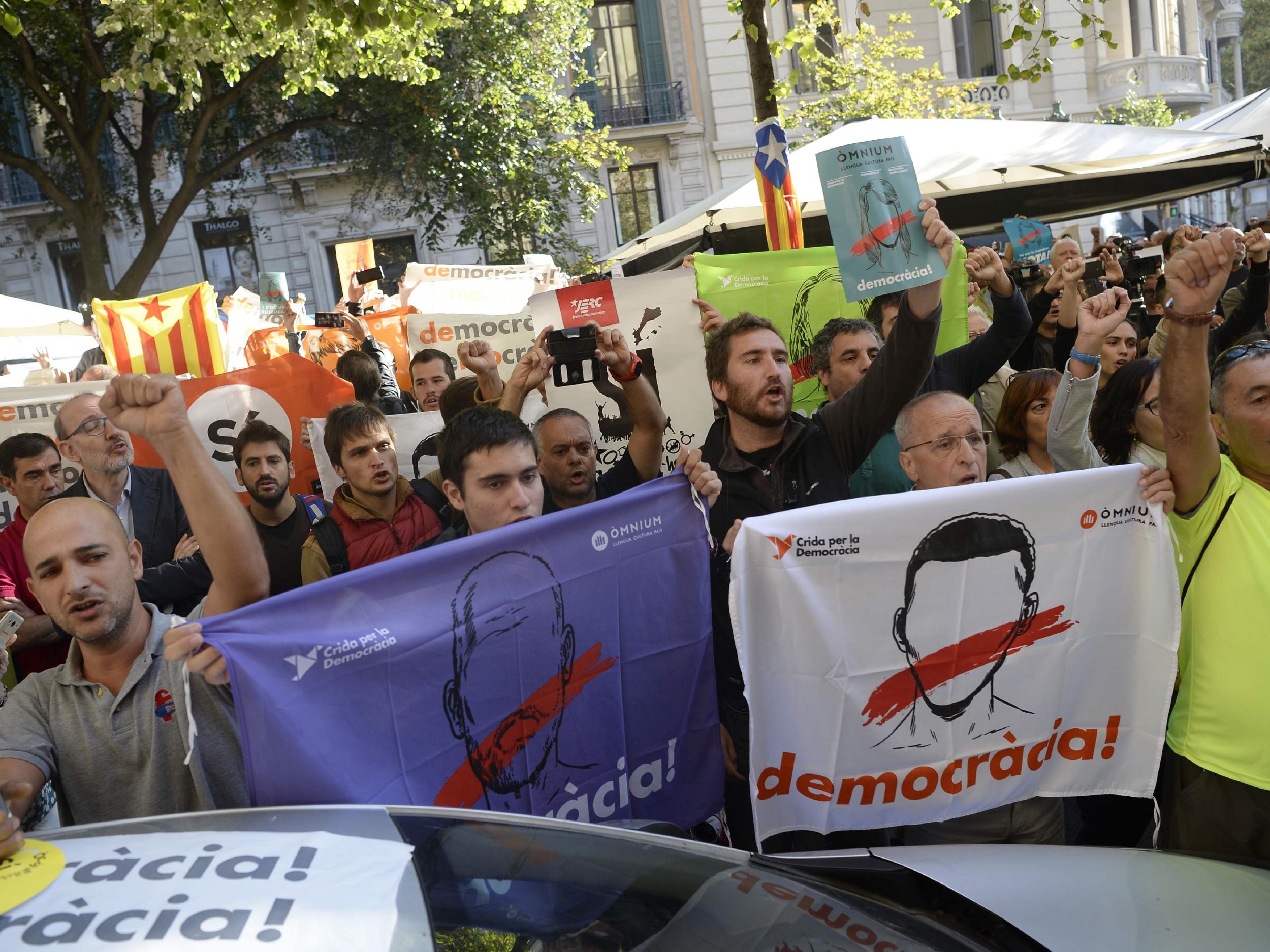The scale of repression over Catalonia is exposing the crisis of the Spanish state
Since the financial crisis in 2008, both the independence and the ‘indignados’ movements have questioned the foundations of the ‘’78 Regime’ in Spain, the constitutional settlement that transitioned the country to democracy after decades of dictatorship

On Wednesday Mariano Rajoy lost control of the narrative on the Catalan question. Appearing before the press after a series of raids and arrests designed to halt a unilateral referendum on independence planned for 1 October, the Spanish Prime Minister trotted out the government’s well-worn arguments in defence of the constitution and the “rights of all Spaniards”.
However, Rajoy’s professed defence of the rule of law is increasingly at odds with reality on the ground. Over recent weeks, judges in Spain have used startlingly loose interpretations of the Supreme Court’s ruling on the referendum’s illegality to issue orders that violate many of the rights they’re charged with upholding. Local police across Catalonia have seized posters and banners related to the 1 October vote, and the Spanish Civil Guard has searched a number of newspaper offices for incriminating materials. These aren’t signs of a state that’s confident in its authority.
Significantly, this legal overreach hasn’t been limited to Catalonia, and nor has the popular response to it. Judges in Madrid and Bilbao have ruled public debates on the Catalan question illegal. While both events eventually went ahead despite the court suspensions, the apparent attempt to use criminal law to suppress political expression recalls some of the darkest moments of Spain’s recent history.
The scale of state repression in Catalonia and its extension to the rest of Spain mark a significant shift in the ongoing dispute over the national question. The conflict is less and less about competing conceptions of democracy and increasingly about the defence of the basic rights like freedom of assembly, speech and the press.
As Rajoy addressed the country on Wednesday night, the streets of Barcelona swelled with tens of thousands of people demonstrating outside the Catalan economy ministry, where a junior minister had been arrested earlier that morning. On the other side of the city, protesters gathered outside the headquarters of the pro-independence party “Popular Unity Candidacy”, blocking the entrance of the national police, which had spent the morning attempting to search the offices without a warrant.
Is this a revolt with a national current? Undoubtedly. But there is something else going on, too. Wednesday’s rallies were not the highly organised, disciplined affairs that characterise the annual demonstrations of the independence movement. Their spirit owed something to the anti-establishment “indignados” movement that occupied the squares of Spain’s major cities in May 2011 and politicised a generation.
Protesters alternated between collective renditions of the Catalan national anthem, “Els Segadors” and the libertarian and anti-fascist chants of “the streets will always be ours” and “no passaran”. As night fell, the air was filled with the sound of people banging pots from their balconies in protest, even in neighbourhoods where support for independence is relatively low. Elsewhere in Spain, emergency solidarity protests were held in more than 20 cities, using the hashtag #CataluñaNoEstásSola, “Catalonia, you’re not alone”.
Since the financial crisis in 2008, both the independence and the “indignados” movements have questioned the foundations of the so-called “’78 Regime” in Spain, the constitutional settlement that transitioned the country to democracy after decades of dictatorship. While neither movement on its own has had the strength to pose a serious threat to the established order, united around a common cause, they could create the most formidable grassroots movement in Europe.
The question now isn’t whether or not there’s a wafer-thin majority in Catalonia in favour of independence. It’s whether there’s a social and political majority capable of standing up to the most regressive elements of the Spanish state and defending basic freedoms and the values of the Republic, be it Catalan or Spanish.
Join our commenting forum
Join thought-provoking conversations, follow other Independent readers and see their replies
0Comments